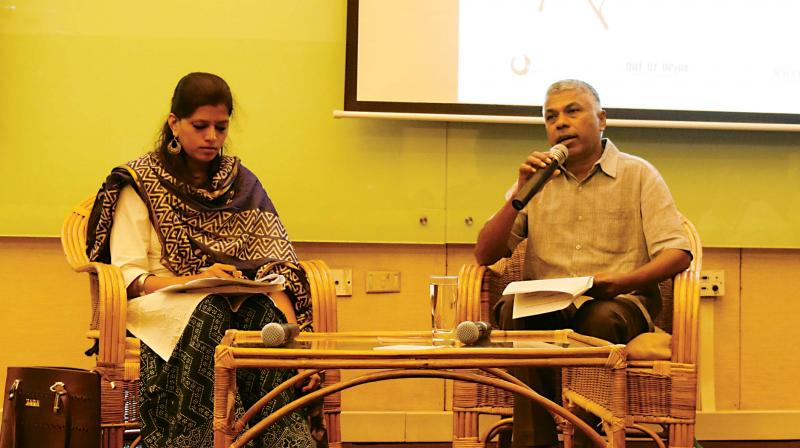'Freedom of speech is impossible in a caste-ridden country'

Freedom of speech plays a central role in the great Indian debate, but is it something we are prepared to achieve? Perumal Murugan believes that caste hierarchies are too deeply ingrained within the Indian mindset for freedom of speech to be a reality.
"We must begin with ensuring that our bureaucrats and people in positions of influence are culturally-sensitive," said Murugan. "My speech is an attempt to understand freedom of speech through the lens of caste, in a land where the concept of Us vs Them has a strong, well-established foundation."
It is not unusual, he explained, for an individual to consider himself inferior or superior in relation to people around him. "We alienate ourselves and that is easy to do. Caste-based discrimination is both open and nuanced in debates surrounding expression and intolerance. Members of one caste are never tolerant towards the habits of another. It's commonplace to ridicule differences. When I married, the question that came at me from most of my relatives was how I would address differences in food habits. Many food items are common today but exist in aversion to the habits of another caste. There is a sense of condescension."
These divides make a marked presence in Tamil film, Murugan explained. "The language used by the hero's character reflects that of the dominant caste. Secondary characters use colloqualisms. Comedy is fraught with it too. The perception is that the dominant caste speaks in an accepted style, while oppressed groups as seen as using slang. In a very subtle way, the hero is given the attributes of the dominant caste."
Can education alleviate us? Does it attempt to address the hierachy at all? "Students are made to stand with their fingers on their lips. This comes from an old belief - a member of the oppressed caste was required to stand hunched, one hand over his stomach and another covering his lips as he engaged in conversation with a member of the dominant caste, to ensure that 'impure' saliva doesn't taint the latter," he said.
"Derogatory terms are used to address people from oppressed castes, regardless of their age." Education, he said, doesn't seek to address the problem. "People find great success without ever having to think about discrimination. It's just not expected of us." An educated man, he concluded, doesn't need to be learned. "Unless we break into these barriers, how can we possibly understand freedom of expression?"

